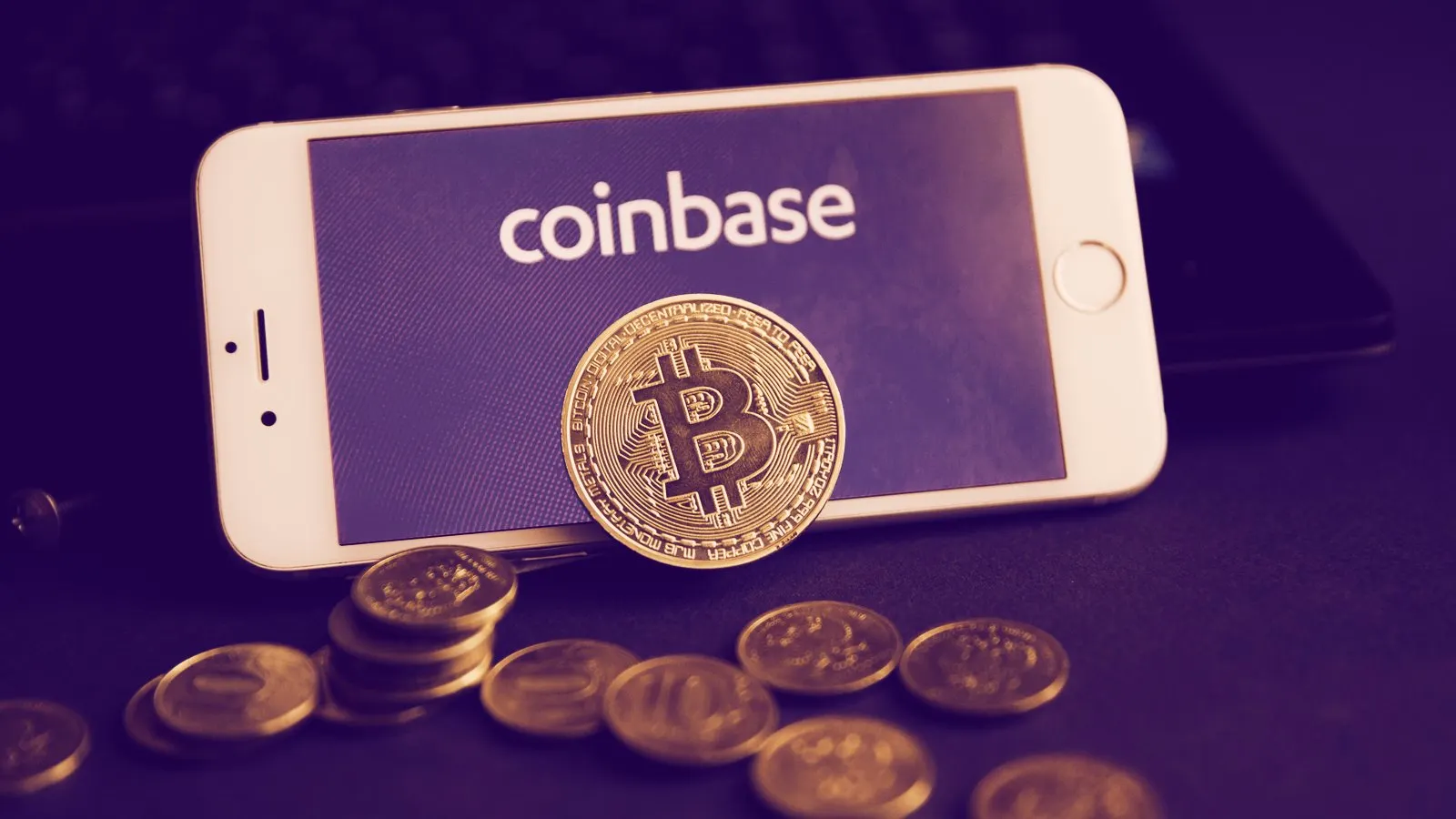In brief
- Coinbase's direct listing is set for April 14.
- The company plans to publicly share its Q1 2021 earnings results a few days beforehand.
- The results will provide new guidance on the price of Coinbase shares before they hit the market.
Cryptocurrency giant Coinbase announced on Thursday that its highly anticipated direct listing will happen on April 14. The company also disclosed it will share its Q1 financial results eight days beforehand, on April 6.
The plan is unusual, and significant because the results will arrive just days before the company offers its shares to the public, and will thus add new guidance for investors looking to determine how much Coinbase shares should be worth.
The announcement comes weeks after Coinbase published its 2020 financial results as part of a mandatory S-1 regulatory filing ahead of going public. Those results showed the company earned a profit of $322 million in 2020 on revenues of more than $1.2 billion—a major jump over 2019, when Coinbase lost $30 million on revenues of $522 million.
The impending earnings announcement will mark the first time Coinbase has publicly disclosed results for a particular quarter. Given the massive crypto bull run that has been underway since December, it's likely the company's Q1 will be the best quarter to date for the company, which earns the vast majority of its revenue from trading commissions.
The Q1 earnings are also likely to lead analysts and would-be investors to reappraise the value of the company's stock. In late February, some private share transactions valued Coinbase as high as $104 billion, a figure that some analysts claimed was too high. More recently, Coinbase disclosed that the average price of its shares sold in private transactions between January 1 and March 15 was $343.58—a figure that translates to an overall valuation of $68 million.
If Coinbase reveals massive Q1 results, that valuation is likely to rise and result in the company listings its shares higher than $343.
Coinbase's arrival on the public markets will be a key milestone for crypto as a whole, and also provide insight into how Wall Street reacts to an industry that has unique cycles and volatility.
It's unclear, for instance, how public markets might react to the arrival of another so-called "crypto winter" like the one in February 2018, when the price of Bitcoin fell by 65% and other cryptocurrencies tanked along with it.
Coinbase's decision to go public also coincides with an unusually frothy period in the broader public markets.
In the last six months, numerous companies have seen their shares soar over 100% on the first day of trading, while there has also been a stampede to invest in SPACs (special-purpose acquisition companies), which are "blank check" public funds whose sole purpose is to acquire another company. All of this has led the overall stock market to hit record highs—though public offerings in the last week suggest the recent momentum is losing steam.
In the case of Coinbase, the company is not pursuing a conventional initial public offering (IPO), which entails working with Wall Street banks to line up deep-pocketed investors who get the first crack at buying new shares, typically for a significant discount. Instead, by using a direct listing, Coinbase will not be issuing new shares, but providing a vehicle for employees and early investors to sell their shares at a price determined by the market.
Last month, Coinbase took another unusual step en route to becoming a public company by hosting a Reddit "Ask Me Anything" (AMA) forum featuring the company's CEO, Brian Armstrong. The AMA amounted to the social media equivalent of a "road show"—a traditional ritual where pre-IPO companies pitch their stocks to rich investors—and involved Armstrong answering questions from Reddit users on topics ranging from customer service to the novelty cryptocurrency Dogecoin.
Coinbase's decision to announce earnings results right before its public listing is also highly unusual, in part because companies on the cusp of going public are subject to an SEC-enforced "quiet period" that strictly restricts the scope of their public communications.
In this case, the earnings release appears to qualify for a quiet period exemption that permits companies to release non-forward looking information that arises in the ordinary course of business.

